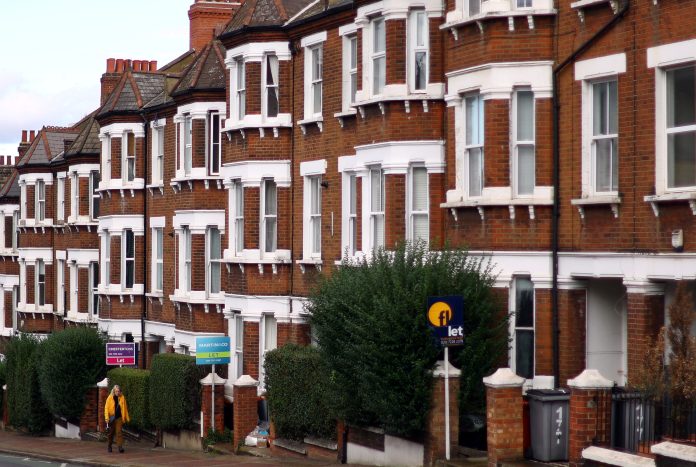
By Charlotte Edwards,
BBC Business Reporter
About three million households are set to see their mortgage payments rise in the next two years, the Bank of England has said.
The Bank’s latest Financial Stability Report also said about 400,000 mortgage holders are facing some “very large” payment increases.
Renters remain under pressure from the higher cost of living and higher interest rates, the report found.
However, the Bank said that overall risks to the UK financial system were broadly unchanged, and businesses and households have remained resilient to the impact of higher rates.
The Bank found that about one third of mortgage holders in the UK, more than three million, are still paying rates of less than 3%.
These will mostly be people who arranged mortgage deals before the Bank of England started to increase interest rates in late 2021.
These mortgages are now expiring, and the Bank said the majority of fixed rate deals will finish before end of 2026.
For the typical household, monthly mortgage repayments are forecast to increase by around £180, or around 28%.
However, for around 400,000 households, monthly payments could jump by 50% or more.
Despite this, the amount of people struggling to pay their mortgage is still expected to stay below levels seen after the 2008 global financial crisis.
“The overall share of households who are behind in paying their mortgages remains low by historical standards,” the Bank says.
The report comes after three major lenders began reducing mortgage rates following hints of a summer interest rate cut by the Bank of England.
This week, HSBC, NatWest and Barclays have all cut the cost of fixed-rate home loans for new deals.
However, the Bank’s report found that the proportion of people falling behind on rental payments has risen from 15.7% to 16.5%.
This is said to be the result of landlords passing on the cost of higher mortgage interest rates on to their tenants.
Higher rents have resulted in “savings buffers for renters and low-income households” being further eroded in the six months to the end of March this year.
It also said that research suggested that many renters and lower-income households “intend to run down their savings even further in the next year to deal with the increased cost of living, making these groups less financially resilient”.
Overall, the Bank said that UK banks were still in a good position to assist businesses and households.
“The UK banking system has the capacity to support households and businesses, even if economic and financial conditions were to be substantially worse than expected,” its report said.
The Bank highlighted some “global vulnerabilities”, including political uncertainty in the UK and abroad, that could impact the sector.
It said upcoming elections worldwide could “lead to financial market volatility”.
Share your story or advertise with us: Whatsapp: +2347068606071 Email: info@newspotng.com














